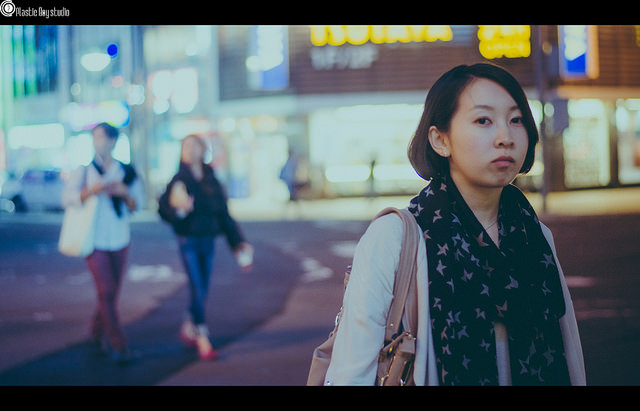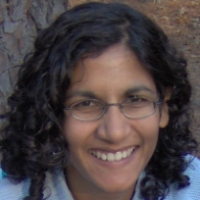~
*Dear elephant reader: if you’re single & looking for mindful dating or conscious love, try out our lovely partner, MeetMindful.
~
Krishnamurti said that the highest form of human intelligence is the ability to observe without evaluating. Yet most of us do it, to ourselves and others. So does judging others make us wrong, bad or stupid?
When I was a teenager, I had three close friends. One of our bonds was that we all loved spouting negative judgements. It was fun—finding fault with others, and spewing nasty things. We didn’t want to hurt anyone so we kept it between ourselves, but it made us feel powerful.
Years later, I was still in contact with them when I started pursuing contemplative spirituality. The “me” I became with all the meditation and contemplation felt at odds with who I was around them. I started to feel fearful that they might drag me back to that old, spiteful paradigm, but I didn’t want to discard them.
Rejecting them felt too easy and didn’t seem authentic to a compassionate spirituality. I could reject them, sure, but I couldn’t as easily reject the part of me that was in them. I wanted to understand it not just suppress it.
Being friends with them was hard though. I didn’t trust what they might be saying about me behind my back. And I wanted our dynamic to change; I didn’t like that old pattern of judging others. But old habits die hard, especially in a friendship.
My friends continued with their catty remarks, and sometimes I couldn’t help myself and joined right in. There was an easy familiarity about doing so. Like a relief on their part, that I wasn’t judging them for being judgmental, and a relief for all of us that I was the same old person they knew and loved.
But the truth was that I was judging them. I felt like I was drowning in an infinite reflection of mirrors. I blamed them for being judgmental, yet through my own thoughts about them, I was still stuck in that judgmental mind-set.
And though I had changed on the outside, I was still thinking all my negative and judgmental thoughts about people…I just wasn’t sharing them with others. Partly, I didn’t see the point. Sharing them just reinforced them. Sure, I felt superior to whoever I was judging and I could feel justified that others agreed with me—majority rules, we must be right. But that icky feeling or the anger or hurt behind the thought still felt nasty and uncomfortable. The other reason I kept my thoughts to myself was because I hated having them, so I suppressed them.
It didn’t work. The negative thoughts would arise from somewhere and I felt deeply ashamed. I went to a meditation retreat on transforming the judgmental mind. I was eight months pregnant at the time but desperate to change this toxic pattern. So I sat and walked in meditation for hours every day hoping that through presence and awareness of my judgements, I would somehow transform them. I didn’t.
It was a painful week as I learned how nasty I could be in thought to others and especially to myself. The sitting was killing me physically and I was hard on myself just as I was hard on others, chastising myself for my aches and pains, my negative thoughts, and my inability to transform them.
It was only when I learned Non-Violent Communication (NVC) that I began to understand them. According to NVC, there are two ways of communicating—jackal and giraffe. Jackal communication is life-alienating and includes blame, shame and judgements. Giraffe communication is life-connecting, compassionate and conscious. According to NVC, when our needs aren’t met, we experience feelings such as sadness, frustration and annoyance. We can choose to feel our feelings and find out our needs, or we can react to our feelings, resist them or blame them on others (because after all they are painful).
Jackal thinking or communication isn’t wrong. In the dualistic paradigm of right/wrong, good/bad in which most of us were raised, it’s tempting to say that giraffe is good and jackal is bad. But it’s actually that paradigm which can be life-alienating. It doesn’t help to blame anyone or deem them wrong for thinking, doing or being who they are. It’s a fact that when others (or we) behave in certain ways, our needs may not be met. But who wants to be told that they are wrong? It’s too easy to take the next step and deem that they are intrinsically wrong and hate them into changing—one of the reasons why recidivism is so high in punitive justice systems.
When our needs aren’t met, it’s inevitable that we’ll jackal, and that doesn’t make us wrong or bad. But jackal communication won’t help us to stay connected to the life source within us and the life source within the other, though it may meet our need for self-expression.
Sometimes well-meaning people act compassionately when they are still in that jackally place. That can lead to conflict avoidance if we are scared of our anger, or don’t know how to speak our truth with compassion. Or it can lead to messages that should sound kind but irk others with self-righteousness. Our jackals are great teachers if we listen to them. We may fear that they will drown us in negativity. But our anger, shame, blame and judgements can teach us about who we are, what we need to heal from and what we long for in life—if we learn how to listen.
So why do we have negative thoughts about others? And why are we often ashamed of them? Because we’ve been told that such thoughts are wrong and bad, and we don’t like to think that we might be wrong and bad. We might believe that our judgmental thinking is causing more tension, but it’s actually a symptom of an unmet need.
We judge others when our needs are not met (connection, understanding, autonomy, safety, respect, choice and many others). Our jackals will tell us more about what’s going on than all the making nice in the world. But it takes courage to enter those hard feelings and mourn the pain of the unmet needs. It takes wisdom and compassion to assume responsibility for our feelings rather than blame them on someone else. In this way, we move from reactionary living to empowered thriving.
Now when I talk to my three childhood friends, I don’t have to pretend I am anyone other than me. I hear their judgements and I don’t judge them back. I empathize with what they are feeling and I deeply listen—to the message beyond the angry labels. I look back to our youth. We were angry, depressed teenagers. We were bullied and excluded, not seen for who we were. We didn’t expect people to like us so we internalized that pain and projected it outwards, finding fault with others before they could find fault with us.
Those experiences conditioned us to believe that we were intrinsically unlikable, that there was something wrong with us, and we react to those experiences (those core unmet needs for acceptance and being seen) by recreating them in our current lives, expecting rejection. Those thoughts will keep arising till we have healed those childhood wounds. They’re not bad, they’re red flags that tell us we have healing to do, healing that will help us move toward compassion and wholeness. I don’t want to transform my judgements or eliminate them. I want to hear them.
I’m trying to create and live in a world where we listen to each other deeply and hear what we’re really asking for, where we love ourselves and others into a full state of being,
Relephant read:
What is a Compassionate Response to Violence?
~
Author: Elizabeth De Sa
Editor: Travis May











Read 4 comments and reply